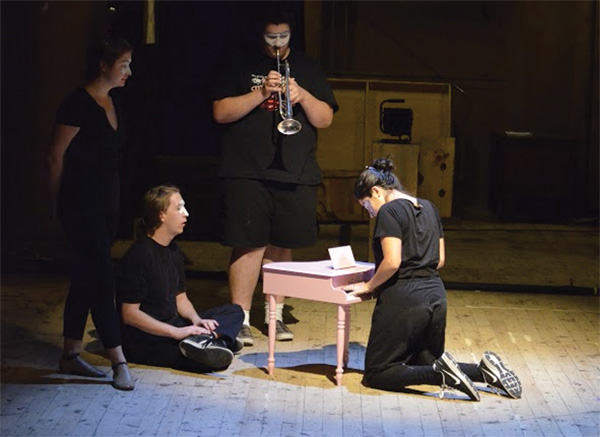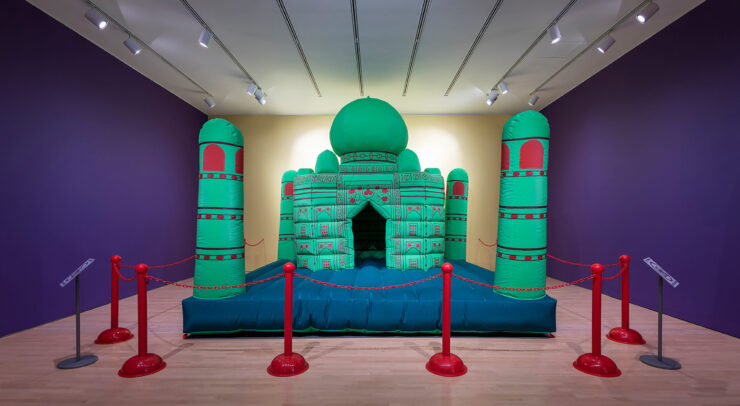U of O adaptation of Princess T provokes thought on politics and human nature
Photos by Annie Thomas
Princess Turandot, though a puppet, is thoroughly human.
From Oct. 29 to Nov. 2, the University of Ottawa Drama Guild will perform Princess T in Academic Hall at 8 p.m. Written by contemporary Czech playwright Daniela Fischerová, the play is one of many adaptations of a Persian fairy tale about a princess who doesn’t want to get married. In the story, suitors try to gain permission to marry her by solving three riddles; any error results in their death.
Director Hélène Ducharme has modified this well told tale of a princess’s desperate struggle for power and her accidental quest for love. She presents a powerful piece of political criticism by purposefully puzzling the audience through the use of a puppet as the principal character. These layers of intrigue artfully direct attention to the play’s historical censorship in Czechoslovakia and the exploration of how power is wielded.
Danielle Savoie, in collaboration with Alexandra Isenor, breathes life into the wooden doll with her skillful manipulation and expressive voice. The puppet’s perfectly timed, subtle movements make the character believable and Savoie’s controlled tones add emotional depth.

.
Aaron Williams delivers a solid performance as Calaf, Princess Turandot’s only successful suitor, convincingly revealing contrasting facets of character.
The supporting cast further develops the play’s satirical qualities. Paul Piekoszewski nails the role of the tyrannical Emperor of China. His depiction of a twisted and disturbing relationship with the princess evokes both disgust and empathy.
The characters Adelma and Barack, played by Meaghan Flaherty and Aidan Parchelo, both embody the suffering of the oppressed through strong characterization.
Aside from adding necessary comic relief to this dark version of Princess T, the five clowns also illustrate the mob mentality associated with discrimination and oppression.
Characters don an eclectic array of outfits pulled from different eras to reflect the play’s Czech origins and Chinese setting. Graphic white faces and boldly coloured features and costumes remind the audience of the play’s multiple layers.
Lighting is particularly demanding and crucial in creating different scenes with the simple set. Jingwei Zhang and the team of technicians not only manage to transition smoothly, but also visually captivate the audience’s imagination with their use of light and shadow. With the seamless integration of music by Lewis Caunter, the visual effects of the shadow puppetry paint an eerie, dreamlike, and sinister world.
Princess T is definitely not a light-hearted, feel-good play. It provokes thought about some unpleasant aspects of society and the cruel side of human nature. But most importantly, it is intriguing and prompts the audience to ask questions, which are sometimes more important than the answers.
Tickets are $20, or $10 for students, and can be reserved at the Secretariat on the second floor of 135 Séraphin Marion (613–562–5761) or by email at theatre@uottawa.ca.





